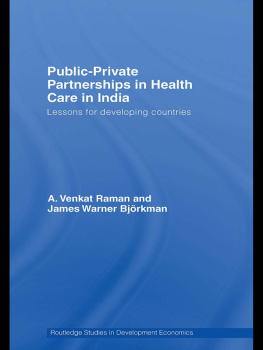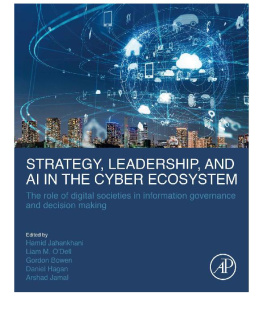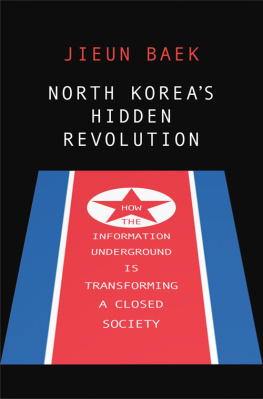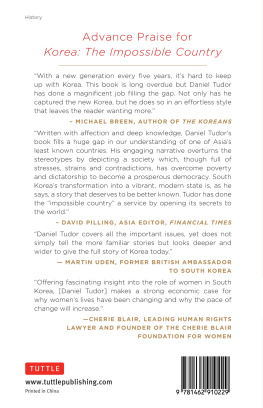Oh and Larson describe the revolutionary developments of the 1980s including the TDX electronic switching system, a major surge forward in semiconductors, the start of privatization and color television and the thoroughgoing restructuring of Korea's telecommunications sector. They further explore government leadership, the growing private sector and international trade pressures in the diffusion of broadband, mobile communication, and convergence toward a ubiquitous network society. The role of education in these developments is explored in detail, along with both the positive and negative aspects of Korea's vibrant new digital media. The book also looks at Korea's growing international involvement, its role in efforts to build a world information society, and finally, its future place in cyberspace.
This book will be of interest to students, scholars and policy makers interested in communications technologies, Asian/Korean Studies and development studies.
Routledge Advances in Korean Studies
1. The Politics of Economic Reform in South Korea
A fragile miracle
Tat Yan Kong
2. Market and Society in Korea
Interest, institution and the textile industry
Dennis McNamara
3. Social and Economic Policies in Korea
Ideas, networks and linkages
Dong-Myeon Shin
4. North Korea in the World Economy
Edited by E. Kwan Choi, Yesook Merrill & E. Han Kim
5. Legal Reform in Korea
Edited by Tom Ginsburg
6. Women, Television and Everyday Life
Journeys of hope
Youna Kim
7. Transformations in Twentieth Century Korea
Edited by Chang Yun-Shik and Steven Hugh Lee
8. The Development of Modern South Korea
State formation, capitalist development and national identity Kyong Ju Kim
9. Industrial Relations in Korea
Diversity and dynamism of Korean enterprise unions from a comparative perspective
Jooyeon Jeong
10. The Global Korean Motor Industry
The Hyundai Motor Company's global strategy
Russell D. Lansbury, Chung-Sok Suh and Seung-Ho Kwon
11. Korean Workers and Neoliberal Globalisation
Kevin Gray
12. Korea in the New Asia
East Asian integration and the China factor
Francoise Nicolas
13. Foreign Direct Investment in Post-Crisis Korea
European investors and mismatched globalization
Judith Cherry
14. Korea Confronts Globalization
Edited by Chang Yun-Shik, Hyun-ho Seok and Donald L. Baker
15. Korea's Developmental Alliance
State, capital and the politics of rapid development
David Hundt
16. Capitalist Development in Korea
Labour, capital and the myth of the developmental state
Dae-oup Chang
17. Political Protest and Labour Movements in Korea
Solidarity among Korean white-collar workers
Doowon Suh
18. Retirement, Work and Pensions in Ageing Korea
Edited by Jae-jin Yang and Thomas R. Klassen
19. South Korea Under Compressed Modernity
Familial political economy in transition
Kyung-Sup Chang
20. New Millennium South Korea
Neoliberal capitalism and transnational movements
Edited by Jesook Song
21. Human Rights Discourse in North Korea
Post-colonial, Marxist and Confucian perspectives
Jiyoung Song
22. Digital Development in Korea
Building an information society
Myung Oh and James F. Larson
Digital Development in Korea
Building an information society
Myung Oh and James F. Larson

First published 2011
by Routledge
2 Park Square, Milton Park, Abingdon, Oxon OX14 4RN
Simultaneously published in the USA and Canada
by Routledge
711 Third Avenue, New York, NY10017
Routledge is an imprint of the Taylor & Francis Group, an Informa business
2011 Myung Oh and James F. Larson
The right of Myung Oh and James F. Larson to be identified as authors of this work has been asserted by them in accordance with the Copyright, Designs and Patent Act 1988.
All rights reserved. No part of this book may be reprinted or reproduced or utilised in any form or by any electronic, mechanical, or other means, now known or hereafter invented, including photocopying and recording, or in any information storage or retrieval system, without permission in writing from the publishers.
Trademark notice : Product or corporate names may be trademarks or registered trademarks, and are used only for identification and explanation without intent to infringe.
British Library Cataloguing in Publication Data
A catalogue record for this book is available from the British Library
Library of Congress Cataloging in Publication Data
O. Myung.
Digital development in Korea : building an information society/
Myung Oh and James F. Larson.
p. cm. (Routledge advances in Korean studies; 22)
Includes bibliographical references and index.
1. Information societyKorea (South) 2. Digital communications
Korea (South) 3. TechnologySocial aspectsKorea
(South) 4. Korea (South)Economic conditions1988- I. Larson, James F. II. Title.
HM851.O3 2011
303.4833095195dc22 2010038145
ISBN: 978-0-415-60646-2 (hbk)
ISBN: 978-0-203-82912-7 (ebk)
Typeset in Times New Roman
By Glyph International
To all those who contributed to Korea's ICT development and also to the young people and leaders who are striving for economic growth in developing countries around the world.
Contents
Figures
Tables
Foreword
South Korea has been a phenomenal economic and technological success. But why? How could a country burdened by occupation, hot and cold wars, and military rule rise to prosperity, democracy, and technology? Despite decades of open communication, to the outsider the Korean governmental and business decision-making process is still somewhat of a mystery. Language, culture, and a patriotic desire to shine combine to leave the outsider guessing why and how things were accomplished. As a result, South Korea's story has been an inkblot into which others project their fantasies. They claim Korea as an exemplar for their pet theory. Capitalism. Industrial Policy. Oligopoly. Secondary education. Universities. Science. Social cohesion. Export orientation. And on and on. For a while it seemed that those who knew did not write, and many of those who wrote did not know.









